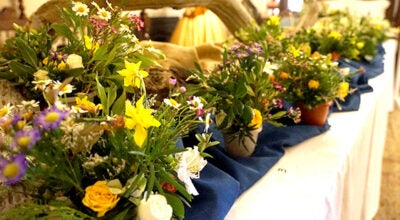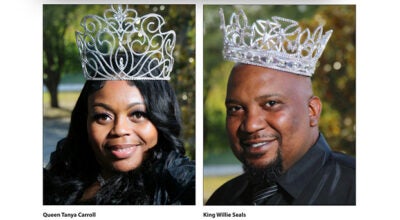Co-Lin students warn of dangers on Internet
Published 12:11 am Thursday, November 10, 2011

Josh Werst, vice president of Phi Theta Kappa at Copiah-Lincoln Community College, is the main presenter for the honor society's presentation of social media dangers. The group's goal is to inform the area's younger students of how to stay safe on social media sites like Facebook.
NATCHEZ — Cameras capture our favorite moments but also moments we’d rather forget, or don’t even remember.
As more people, especially of younger generations, live out their lives online for the world to see, there is a danger that subsists with the fun of living in public.
Copiah-Lincoln Community College’s honor society members wanted to find a way to convey that while Facebook is fun, it can also cause life-changing problems down the road.

Faith O'Brien and Josh Werst, leaders of Phi Theta Kappa at Copiah-Lincoln Community College's Natchez campus, worked with other students to design a program to illustrate the dangers of social media sites like Facebook. The program will be presented to the area's high school juniors on Nov.28.
Phi Theta Kappa members Faith O’Brien, president, and Josh Werst, vice president, said the group chose the “democratization of communication” as a service project idea. Because the theme is relevant and the information is useful to modern youth, the group will share a presentation with 11th graders in the Natchez-Adams County School District.
Werst said the honor society wants to convey to students that one photo, one thoughtless post or one silly comment can cost them dearly.
“We want to explain how it can affect someone the rest of their lives,” Werst said. “It’s not just sharing with friends. The rest of the world can see what you’re doing.”
O’Brien said now employers go to Facebook to find information on potential hires.
“It might cost (young people) a future job,” O’Brien said. “It could have been something you did or said two summers ago, but a boss or potential boss wouldn’t want to hire you (after seeing it).”
Werst said even those without a Facebook profile are likely to end up on the Internet. To illustrate this, a photo was quietly taken of a group of college students who sat in on a recent PTK social media presentation before it started, and was uploaded to the Facebook profile dedicated to the program. Werst said without the audience knowing, a panel of volunteers viewed the photo, and entered dozens of comments about the people pictured in it. The Facebook page was revealed to the audience during the presentation. Werst and O’Brien said audience members were surprised, not only to see themselves, but to see how many comments were posted as they were just sitting there.
“Facebook can be your best friend or worst enemy,” Werst said.
O’Brien said the group is not interested in discouraging Facebook use. They just want young people to stop and think before they post.
“People just don’t understand the consequences of seemingly harmless actions,” O’Brien said. “We’re not moving mountains here. We just want them to be a little more careful. Basically ─ if you don’t want your grandma reading something, you don’t need to put it on Facebook.”
Because O’Brien and Werst are college students themselves, they said hopefully the students will feel more of a connection with them. The college’s film students shot a short film to accompany the presentation, featuring local student leaders and athletes.
“Coming from a 30-or-40-year-old, it’s harder for a 17-year-old to relate,” Werst said.
O’Brien and Werst said the project has evolved since its inception, and their goal is to design a curriculum that can be picked up by other campus leaders in the future, and present it to local students.
“We want it to be packaged and repeatable,” Werst said.
Approximately 400 high school juniors will be exposed to the presentation on Nov. 28.
“The presentation is kind of funny,” Werst said. “But it gets the point across. We’re having fun with it.”





